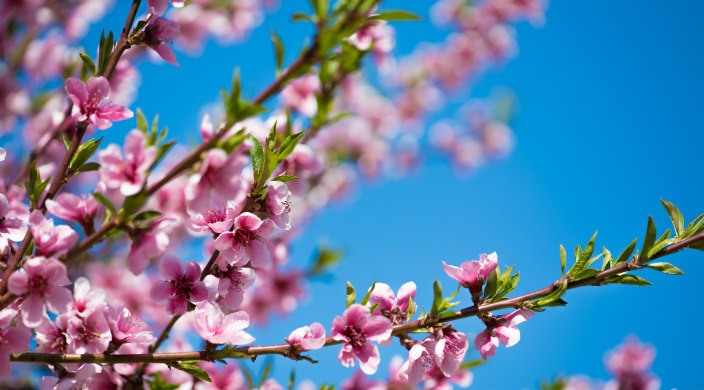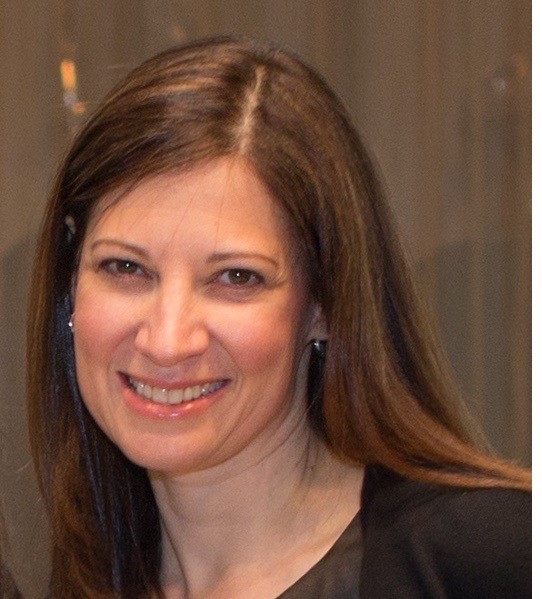
In the past few weeks, my mom has lost two of her dearest friends: her 92-year-old neighbor, Norman, with whom she attended symphony concerts, synagogue services, and weekly dinners, and a beautiful, brilliant, and unfailingly kind 98-year-old Holocaust survivor, Bronia, with whom she spoke by phone every day.
I’ve been trying to think of ways to cheer her up and bring her some measure of comfort. If I could, I’d snap my fingers and usher her into a Shabbat service sure to make her face light up: a “three-Torah Shabbat.”
Occasionally, if the Sabbath (Hebrew for Shabbat) during Hanukkah coincides with the beginning of the Hebrew month of Tevet, my mom will remind me of the approaching three-Torah Shabbat. For her, it’s like a triple scoop of ice cream – one Torah parashah for the regular portion, a second Torah for the Hanukkah reading, and a third Torah reading for the newly hatched month.
This week, on April 6, another three-Torah Shabbat will be upon us, and it won’t be long before my mom reminds me about it. On this one, the Jewish community will celebrate the first day of the Hebrew month of Nisan. In some synagogues a special reading from Exodus summarizing biblical Passover rules will be chanted, as well as a reading for the new month and the regular Torah portion.
In the Talmud, Rabbi Joshua teaches that “the world was created in the month of Nisan,” first of all of the months. An alternative opinion can always be found in the Talmud and, indeed, Rabbi Eliezer posits that obviously the beginning of creation took place during the Hebrew month of Tishrei, which occurs in the fall, at the time of Rosh HaShanah. In a classic Jewish move, the Kabbalists (mystics) explained that both these statements are true: The physical world may have been created in the fall, in the month of Tishrei, but the idea for the world was created in the springtime month of Nisan.
Nisan reminds us that nature revives itself after the winter. There is a Talmudic custom to recite a special blessing during Nisan, Birkat Ilanot, the blessing of the fruit trees, upon seeing the first blossoming trees:
Blessed are You Adonai, Sovereign of the Universe, Who did not leave anything lacking in the universe, and created goodly creatures and beautiful trees to give pleasure.
To fulfill this lovely mitzvah (commandment), one needs to be on the lookout for budding blossoms. Our heads can’t be bent to our cell phone or computer screens, or so deep in thought that we don’t take a moment to look up and appreciate the beauty of nature as the season changes.
This blessing, even in all its loveliness, presents us with a quandary: How can we honestly say the world lacks nothing? Thinking of my mom and the tremendous gap in her heart from the loss of her two friends, I wonder how she will recite this blessing with sincerity.
Perhaps, like in the Talmud teaching about the creation of the world, there are two plausible answers. Now that her beloved friends have died, her relationships with them have changed. Their presence was a gift, and their love and companionship enhanced her life. Now she must hold tight to memories of phone calls with Bronia and Sunday suppers with Norman – and perhaps, too, to the hope that new friendships will blossom in her life in the coming months.
As the first rose and azalea buds burst forth in Nisan, my mom, I’m sure, will utter the Birkat Ilanot. I imagine that from their perches in the blooming Garden of Eden, Bronia and Norman will smile and, upon hearing my mom’s blessing, will offer a quiet “Amen” in response.
Related Posts

Harnessing the Power of our Mothers Around the Seder Table

Melding Tradition and Innovation: Our Interfaith Toddler Naming Ceremony


